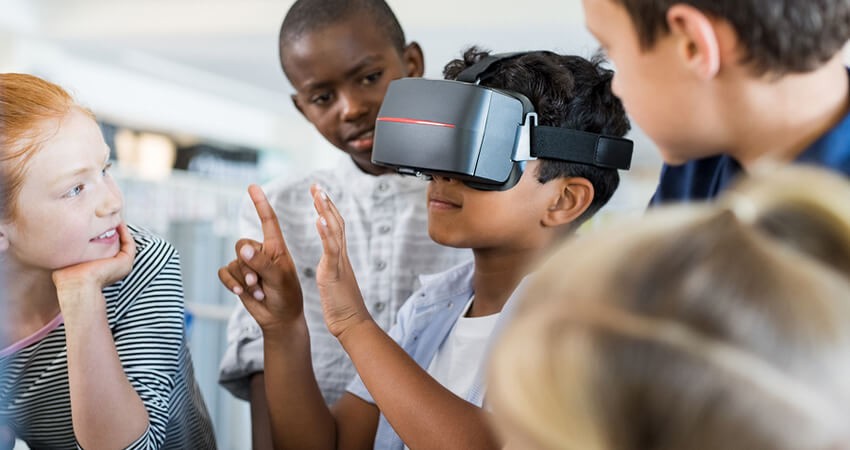Today we're talking about leadership and the role of technology. In your opinion, you mentioned the Metaverse, but what top 3 tech trends should every CMO know about?
'The first one is AI. That's also a big bet for our company, we invest a lot in artificial intelligence. And if you look at some stats, me being German I love stats, the PwC's estimate that AI is set to contribute up to 15.7, listen to this, trillion dollars to the global economy in 2030. So it's really, really big. And when you look at it today, automatic processes and AI-powered creation tools let businesses run so much more efficient and better performing particularly for the CMOs, the ad campaign. Which is really, really important, particularly also for the small businesses. And in the future, we think and we're working on that our system will be able to take a business website alone and pull it together and in an entire campaign automatically from the creative down to the targetting. That would be huge for the SMB, you know? Really this automation. And also when you look at business messaging, that's another big bet that you've probably heard about. More than one billion users connect with the business account across our Meta services every single week. And some messaging needs to be personalized, but some don't. And AI handles the repetitive interaction that doesn't require another human. So, AI, keep that in mind if you're a CMO, that's something you should really dig deeper in and understand where this is taking you.'
So that's one, AI. What about the second one?
'Secondly, I would say, the video and creators, and you probably experience this yourself, I certainly do. I want to share and experience moments in the richest way that I can. And I want to do this easily. In the last several years, my network has gotten faster, video is the main way that people experience content online. And it could be in long-form that we all love when we want to convey brand messaging, driving consideration and telling nuanced stories. But I have a 17-year-old son, he doesn't want long-form, he wants shorter videos on Instagram, on Facebook, you know? Shared content, discover content. So Reels is 20% of the time people spend on Instagram, 20%. Yes. And 50% of the time spent on Facebook, that's something you know Adam, you said you spend a lot of time on Facebook. 50% of the time people spend on Facebook, they spend with video. So that's it. AI, video, and of course, and we talked about this before, the Metaverse. These are the three trends I would write in the little notebook of every CMO.'
What kind of leadership do you need to deal with the impact of all these new technologies? Both from businesspeople and society.
'So I think you have to be very, very inclusive, empathic, and visionary. You know, we love to say: Hey, this is my team, this is my team leader, this is the hierarchy in the company and micromanage my teams, these times are over. If you look at brilliant and creative people, people that want to see empowerment, they want to be made part of the plot and you need to recruit, to retain and develop the right talent more than ever in this very, very competitive and fast-moving industry. So, when you're a leader, embrace the change, empower the people, be visionary and also be bold and have the courage to do big things.'



